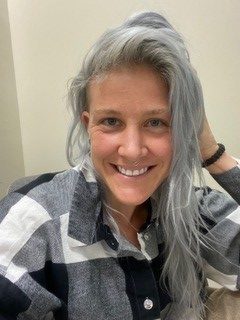Kiki Kline is a first-year student in the Social Work Ph.D. Program.

What has been your favorite part(s) of your experience so far?
I love that I can explore my own research interests. Much of the beginning of the program has been dedicated to thinking about what we would like to target in our research careers. In social work, we design our research with careful considerations of our ontological and epistemological frameworks. Learning about both the quantitative science practices of statistics and the theoretical and practice-based nature of the practical applications of social work allows me to conduct my research and social work practice to meet the needs of the task, context, and individual.
What drew you to pursue a degree in social work?
I initially was hell-bent on getting a degree in clinical psychology. After four years of application rejections into clinical psychology Ph.D. programs, I shifted course and explored social work. While in the social work master’s program I went through some ups and downs. At one point, I even considered dropping out of the program. I learned, as many of us do, that every field is made up of personalities and areas of focus. After an introduction into macro mental health social work practice, I knew this is where I fit. My values and belief system align with the biopsychosocial-spiritual and person-in-environment approach that social work resides from.
My primary North Star is to reduce suffering for individuals related to food, their bodies, and weight with populations such as those with subclinical and clinical eating disorders, who self-harm, and with suicide. Second, I aim to push the boundaries of surrounding mental health perceptions and treatment-as-usual. The importance of mental health is slowly gaining national attention, however, the lack of funding, attention, and skewed social norms contribute to the increased rates of psychological distress within Western populations.
What are you interested in doing once you graduate?
Saving the world. Really, I would like to work for a University conducting research while heading legislative efforts and owning a clinical therapy practice.
Is there anything else you would like to add?I have experienced a diagnosed eating disorder and had engaged in self-harm and addiction, and here I am at UT starting a PhD program. Many people experience psychological distress, yet we think that they are less than or limited in functional contribution to society. That is 100% not the case. We are all capable of using the things that have made us suffer towards both the motivation of our life trajectories and in helping others.